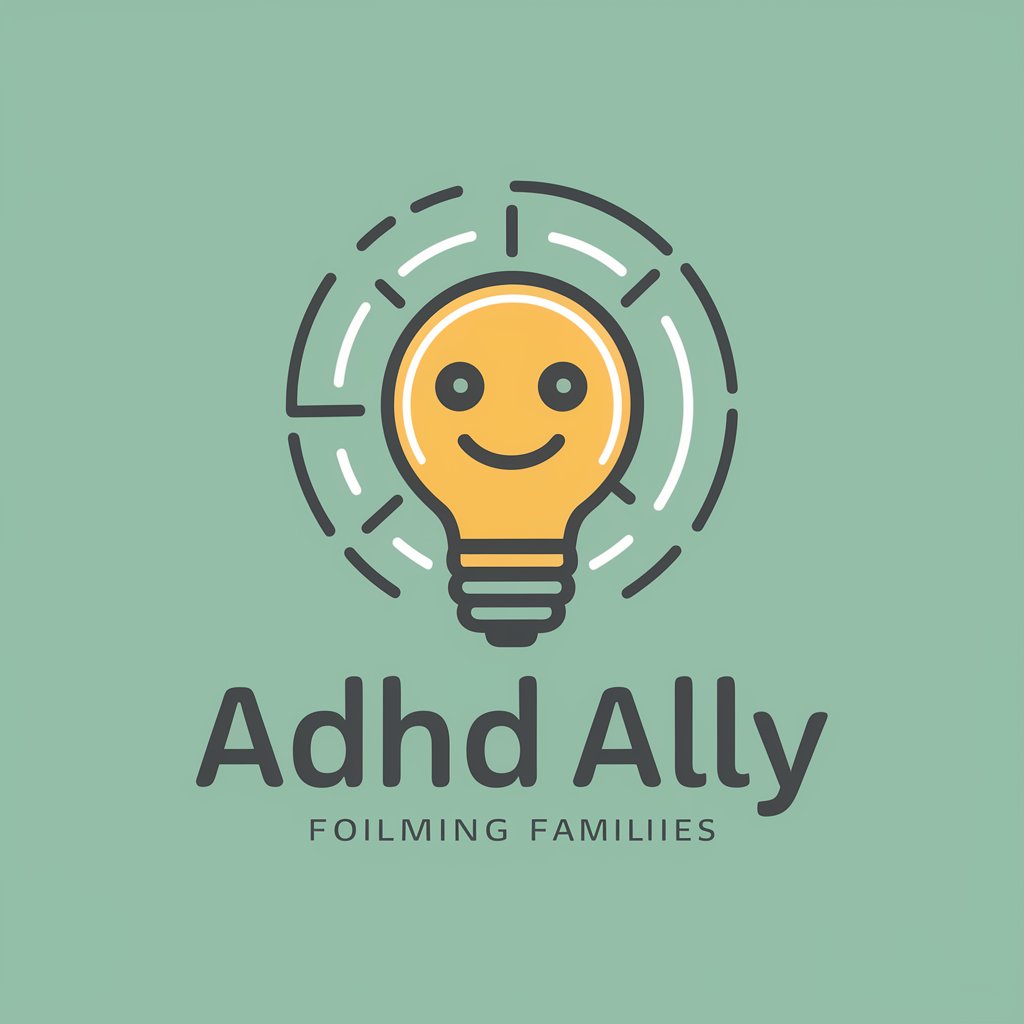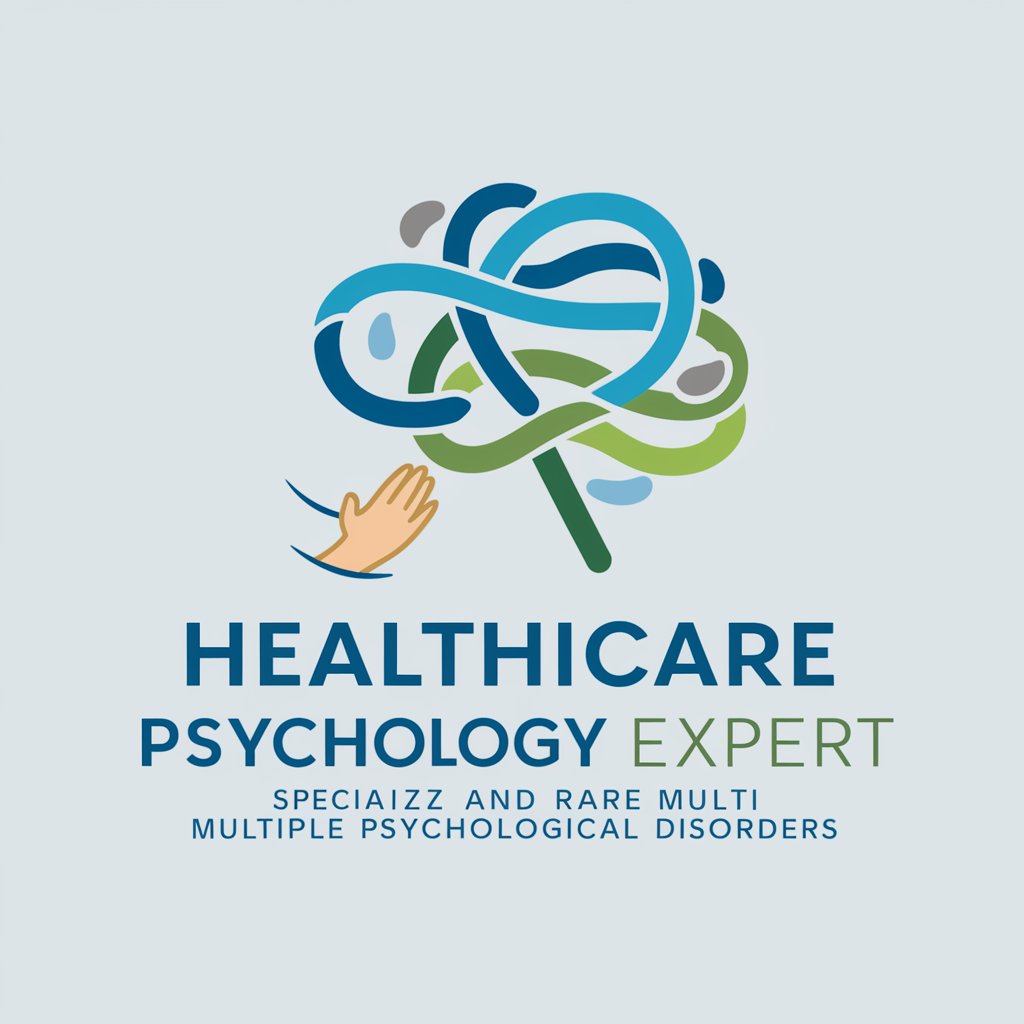6 GPTs for Coping Mechanisms Powered by AI for Free of 2026
AI GPTs for Coping Mechanisms are advanced tools designed to assist individuals in managing stress, anxiety, and other emotional challenges by utilizing the power of Generative Pre-trained Transformers (GPTs). These tools leverage AI to provide personalized guidance, therapeutic conversations, and emotional support, making mental health assistance more accessible. They are specifically tailored to understand and respond to a wide range of emotional states and coping needs, demonstrating the role of GPTs in offering nuanced solutions in the mental wellness domain.
Top 6 GPTs for Coping Mechanisms are: ADHD Ally,Steunpunt ADD & Sociale Fobie,Depression Remedies,Veteran Companion,🧠 MindMender: Mental Wellness Guide 💆♀️,What Stoic Philosopher am I?
ADHD Ally
Empowering ADHD management with AI

Steunpunt ADD & Sociale Fobie
Empowering ADD & Social Phobia Management

Depression Remedies
Empowering your mental health journey with AI

Veteran Companion
Camaraderie and Support, AI-Powered

🧠 MindMender: Mental Wellness Guide 💆♀️
Empowering Emotional Well-being with AI

What Stoic Philosopher am I?
Discover Your Stoic Sage

Distinctive Attributes and Functions
AI GPTs for Coping Mechanisms stand out for their adaptability, providing a spectrum of functions from conversational support to therapeutic exercises. These tools can simulate human-like interactions, offering empathy and understanding. Unique features include language learning for recognizing and adapting to various emotional expressions, technical support for mental health professionals, web searching for resources, image creation for therapeutic purposes, and data analysis for identifying patterns in emotional states. This versatility allows for a personalized approach to coping strategy development.
Who Benefits from AI GPTs for Coping
The primary users of AI GPTs for Coping Mechanisms include individuals seeking emotional support, mental health professionals looking for supplementary tools, and developers interested in creating tailored mental health applications. These tools are designed to be accessible to novices without programming skills, while also offering advanced customization options for tech-savvy users, making them a versatile resource for a wide audience.
Try Our other AI GPTs tools for Free
ADHD Management
Discover how AI GPTs tools for ADHD Management can transform daily management for individuals with ADHD, offering personalized, adaptive support to enhance focus and productivity.
Cognitive Enhancement
Discover how AI GPTs for Cognitive Enhancement can revolutionize learning, creativity, and problem-solving with tailored, user-friendly solutions.
Interactive Puzzles
Explore AI GPTs for Interactive Puzzles: the ultimate tool for creating, solving, and engaging with puzzles. Perfect for enthusiasts and professionals alike, discover how AI revolutionizes puzzles.
Creative Stimulation
Discover how AI GPTs for Creative Stimulation unlock innovation, offering tools for content creation, problem-solving, and design across industries, accessible to all skill levels.
Funding Guidance
Discover how AI GPTs for Funding Guidance can revolutionize your approach to finding and applying for grants and funding opportunities with advanced, tailored AI support.
Inspiration
Discover how AI GPTs for Inspiration can unlock your creativity, offering innovative solutions and ideas across various domains with tailored, AI-powered tools.
Further Perspectives on AI and Coping
AI GPTs for Coping Mechanisms demonstrate the potential of technology to enhance mental wellness. Their user-friendly interfaces and integration capabilities make them a promising addition to existing mental health systems, offering scalable and personalized support. These tools highlight the intersection of AI technology and mental health care, paving the way for innovative coping strategies.
Frequently Asked Questions
What exactly are AI GPTs for Coping Mechanisms?
AI GPTs for Coping Mechanisms are AI-driven tools that provide support for individuals dealing with emotional challenges, using conversation and activities tailored to help manage stress, anxiety, and other emotional states.
How do these tools adapt to individual needs?
These tools use AI to analyze user inputs, adapting responses and suggestions based on the user's emotional state and preferences, offering a personalized coping mechanism strategy.
Can AI GPTs for Coping replace therapists?
No, they are designed to provide support and coping strategies, not to replace professional mental health services. They can be a supplementary resource alongside traditional therapy.
Are these tools accessible without coding knowledge?
Yes, they are built with user-friendly interfaces that require no coding skills, making them accessible to anyone seeking emotional support.
How can professionals integrate these tools into their practice?
Mental health professionals can incorporate these AI tools as supplementary resources, offering additional support and coping strategies to their clients outside of sessions.
Can these tools learn and adapt over time?
Yes, with advanced machine learning capabilities, these tools can evolve to better understand individual user needs and improve support over time.
Are AI GPTs for Coping Mechanisms secure and private?
Yes, these tools are designed with privacy and security measures to protect user data and ensure confidentiality in conversations.
Can I customize these AI tools for specific coping strategies?
Yes, developers and professionals can customize these tools to focus on specific coping mechanisms, tailoring the support to match individual or group needs.